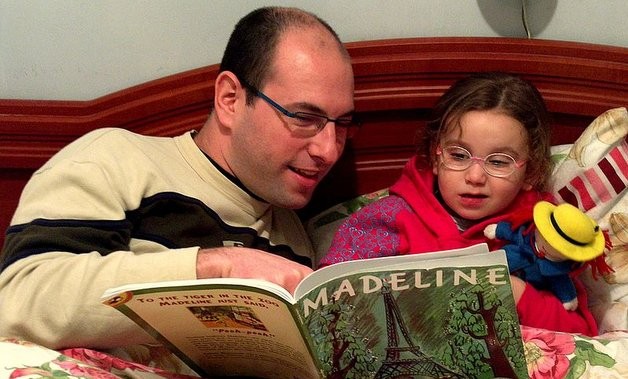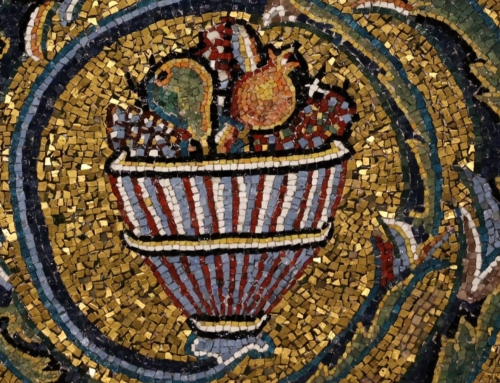A couple of weeks ago, I went with a few brothers to the first installment of the Metropolitan Opera’s Summer Recital Series. Gathered around the SummerStage venue in Central Park, we listened—to something. Given the language barrier and the scarcity of bodily expression, I was relegated to the mere appreciation of vocal virtuosity and what touches of style I could detect. Something beautiful was happening, but I felt a touch barbarous, for I was unable to access the meaning. I was like a child at the grown-ups’ table.
That inability to understand the singer’s words brought home just how powerful language is. Words are positively potent. To think that I can cause the immaterial existence of a thing in the mind of another by a vocal enunciation is truly marvelous. Words permit us to clutch reality. And so, it should come as no surprise, as documented in a recent article, that exposure to words is a crucial factor in early childhood brain development:
Reading, as well as talking and singing, is viewed as important in increasing the number of words that children hear in the earliest years of their lives. Nearly two decades ago, an oft-cited study found that by age 3, the children of wealthier professionals have heard words millions more times than have those of less educated, low-income parents, giving the children who have heard more words a distinct advantage in school. New research shows that these gaps emerge as early as 18 months.
The article focuses on the benefits of introducing a child to more words, and its conclusions stay at the level of literacy. Familiarity with more words gives the child a larger lexicon, a greater familiarity with the language, its properties, and its rules, and (one might extend the logic) an advantage when learning to read—a general leg up on literacy. While this is true, I think we can extend its logic.
Words are important not only for the sheer fact that they are proven to increase a child’s scores on standardized tests later in life. Rather, words are important because they mediate things. By introducing the child to words, the parents also help them to forge the links between name and reality. “That’s a doggy,” says mom as she points to the picture of the Dalmatian. “What sound does it make?” By reading to their children, parents cultivate the more general appreciation for the world around us. Books extend the reach of a child’s imagination to the barnyard, the moon, neighboring countries, and (for some chosen few born during the glory days of Transformers) the planet Cybertron. By experiencing the world as a discovery and by growing sensitive to its varied colors, textures, sights, and characters, children begin their lives deeply immersed in an environment of realism. In this adventure, the parent holds the privileged place in this “art of accompaniment.”
Parents, beyond being mere contributors to the burgeoning child’s mental cache, are responsible for the most gigantic of tasks. For whereas the educational specialist is tasked with the remediation of a particular fault or the introduction of a particular skill, the parent is entrusted with the care of children who “require to be taught not so much anything as everything.” Chesterton once marveled at the fact that, “Babies need not to be taught a trade, but to be introduced to a world . . . in a time when [they] ask all the questions that there are, and some that there aren’t.”
So, though the article may consign itself to the recounting of facts, in calling for a renewal of story time, the author implicitly calls for a reinvigoration of the family. When the author innocently observes that “The pediatricians’ group hopes that by encouraging parents to read often and early, they may help reduce academic disparities between wealthier and low-income children as well as between racial groups,” she has stumbled into a greater question about hearth and home. For until the home is healed, made safe for leisure, and kindled with the flame of discovery, her injunction is a dead letter. In this pursuit, it is perhaps best to keep in mind that, though difficult, the task is worthy, for what greater calling is there for a parent than to be the custodian of all reality?
✠
Image: Ludwig Bemelmans, Bedtime Story







